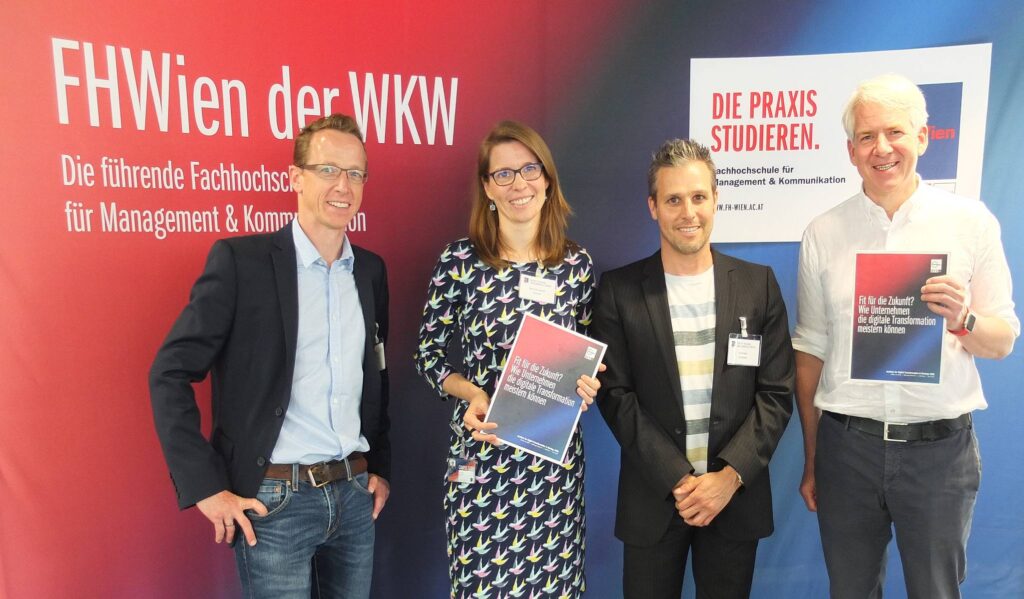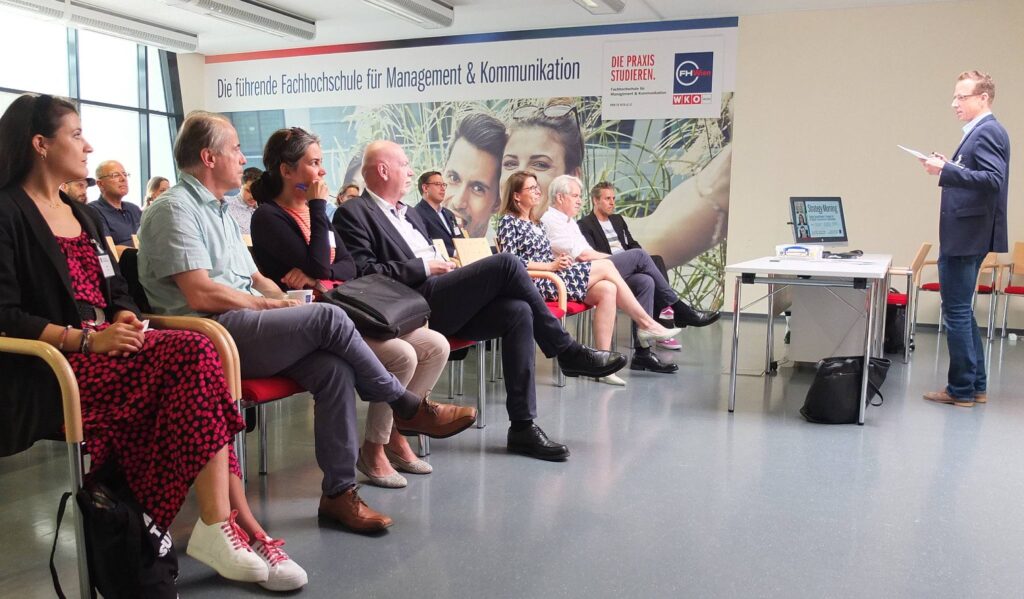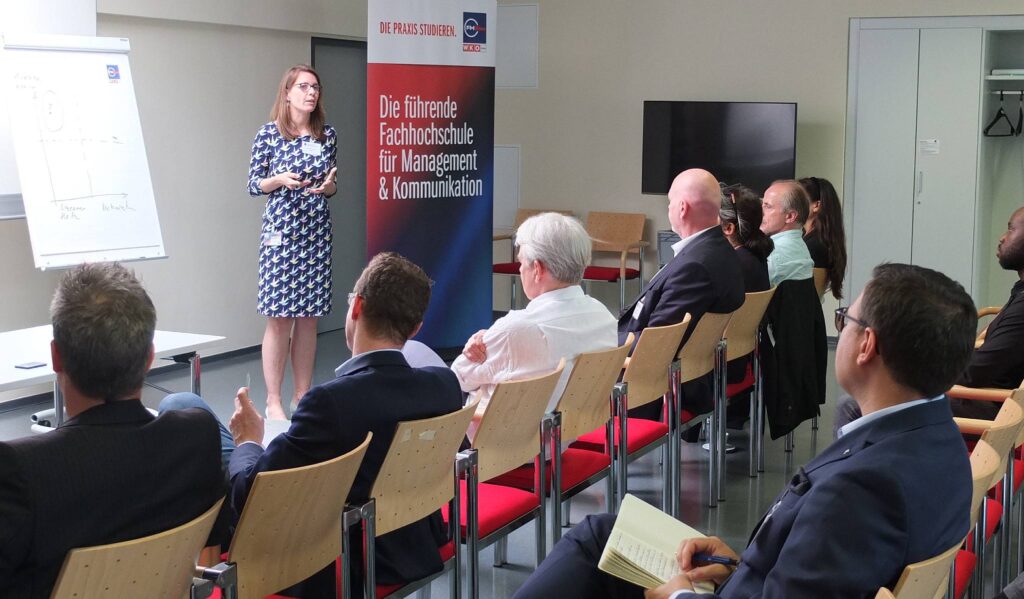In early June, the Institute for Digital Transformation & Strategy (IDS) at FHWien der WKW presented the study “Fit for the Future? How companies can master the digital transformation”. The study was developed within the framework of the Microeconomics of Competitiveness (MoC) Endowed Chair, which was funded by the Vienna Chamber of Commerce (WKW), and presented to an interested audience of experts during the “Strategy Morning”. The event was the first Strategy Morning that could take place again in presence at FHWien der WKW since the outbreak of the Covid-19 pandemic.
A review on the Strategy Morning “Digital Future Capability”.
For the study presented by Ann-Christine Schulz and by Sebastian Eschenbach, interviews were conducted with experienced entrepreneurs to understand how digital transformation affects their current business model and what strategic challenges they face. All SMEs interviewed are aware of the importance of digital transformation and see themselves confronted with serious changes in their competitive environment. Almost half of the companies stated that their current revenue will be threatened by digital business models in the next five years. At the same time, the changes mean that companies will have to deal with new digital technologies and develop digital competencies within the company. In doing so, they face a large, ever-changing range of new technologies.
What options do SMEs have for digital transformation
Established companies generally have two basic options for responding strategically to the new digital challenges. These are, according to the Digital Business Model (DBM) developed by Stefanie Woerner and Peter Weill at the Massachusetts Institute of Technology (MIT):
- Get to know customers better digitally
- Open up to a value network
Sebastian Eschenbach, co-author of the study, explained that Austrian SMEs are currently firmly anchored in linear value chains and maintain close customer contacts. They have comprehensive customer information and can respond flexibly to their needs. However, this data is generally not available digitally. As a result, many SMEs are stuck in a strategic trap where existing network structures (e.g. Amazon Marketplace, delivery services, booking portals, etc.) or further development into their own network platform are still rarely an option.
Innovative start-up spirit as an entry point to digital transformation
Andreas Schober from More Technology GmbH showed how the development of a business model based on a network structure can succeed in a vivid presentation of his company. The start-up developed an AI-based recommendation system for the leisure industry. Due to the Covid-19 pandemic and the associated collapse in demand, the company was under considerable pressure to change. During the crisis, it therefore developed modular plug-in software, which is now also sold as a customizable product to major customers, among others.
With SME efficiency and start-up innovation to digital transformation
While startups focus on innovation per se, established SMEs tend to focus on efficiency. To successfully integrate innovations into the organization, SMEs therefore have to act “two-handed”. In this context, Ann-Christine Schulz explains the concept of “organizational ambidextry” – the ability of a company to develop novel competencies and innovations on the one hand and to optimize existing core processes at the same time.
Thus, the current study results simultaneously form a starting point for further research at the Institute for Digital Transformation and Strategy (IDS) at FHWien der WKW. In a research project launched in April and funded by the City of Vienna (MA23), Ann-Christine Schulz and Jasmin Será will analyze promising implementation options for organizational ambidextry over the next three years.
More information about the project “Organizational Ambidextry in SMEs” can be found here.


